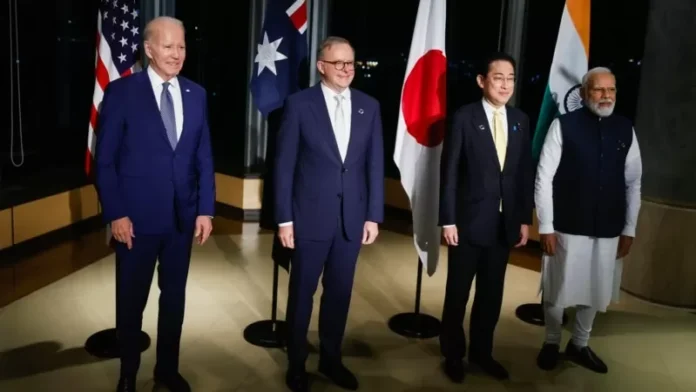WHITE HOUSE — Jake Sullivan, the outgoing U.S. national security adviser, is urging the incoming Trump administration to continue President Joe Biden’s strategy of strengthening ties with allies and partners in the Indo-Pacific region. This approach is crucial in countering adversaries such as China and North Korea, according to Sullivan.
During a roundtable with journalists on Friday, Sullivan responded to VOA’s question by stating, “The American position in the region is incredibly strong right now.” He emphasized the importance of maintaining continuity in the Indo-Pacific strategy, warning that any significant changes could bring risks.
Sullivan, considered one of the main architects of the Biden administration’s Indo-Pacific strategy, expressed confidence that the president’s approach is “working in a big way.” However, he also acknowledged that the administration has not made significant progress on the denuclearization of the Korean Peninsula.
Despite this, Sullivan highlighted key distinctions between the current situation and previous administrations. He pointed out the closer cooperation between North Korea and Russia, as well as the broader alignment of competitors and adversaries such as Russia, China, North Korea, and Iran.
The outgoing national security adviser also reiterated the administration’s warning against reducing U.S. support for Kyiv, something that President-elect Donald Trump has signaled he would do. Sullivan stressed the importance of Ukraine’s stability in the Indo-Pacific region, stating that “China is watching.”
Biden’s aides have expressed concerns that the West’s reluctance to bolster Kyiv’s defenses could embolden China to follow Russia’s lead and invade its smaller democratic neighbor, Taiwan. There are also fears that China may act more aggressively on its disputed territorial claims in the South China Sea.
Bonnie Glaser, managing director of the German Marshall Fund’s Indo-Pacific Program, warned that cooperation between Moscow and Pyongyang has developed quickly. She pointed out that North Korea has even sent troops to support Russia’s invasion of Ukraine and that this trend is likely to continue.
“We have yet to see what weapons systems or military technologies Putin has promised to deliver to Kim,” Glaser told VOA, referring to Russian President Vladimir Putin and North Korean leader Kim Jong Un. She also noted that Beijing has refused to apply leverage to stop this trend.
Sullivan expressed confidence that the administration has “set up a great opportunity for the next team” to enhance the U.S. position in the Indo-Pacific region. He highlighted Biden’s approach of creating a network of alliances and partnerships, including enhancing cooperation with the Quad, an informal grouping with India, Australia, and Japan.
The administration has also rolled out the AUKUS security deal with the United Kingdom and Australia, which will provide Canberra with nuclear-powered submarines to better patrol the waters of the region. Sullivan also emphasized the importance of trilateral cooperation among the U.S., Japan, and South Korea in deterring North Korea’s nuclear threat.
In addition, the U.S. has been working with Japan and the Philippines to push back against Beijing’s aggression in the South China Sea. This approach has been successful in shifting the balance of power in the region, according to Sullivan.
There is a question of whether there will be continuity or change in U.S. policy towards China under the incoming administration. Trump has selected two well-known China hawks for key roles in his “America First” Cabinet: Senator Marco Rubio as secretary of state and Representative Mike Waltz as Sullivan’s successor.
However, Waltz recently announced a directive to terminate all national security staffers loaned from other departments and agencies who serve in apolitical, nonpartisan senior staff roles. This move was meant to enforce absolute alignment with Trump’s policy agenda.
Aside from staffing the National Security Council with Trump loyalists, it is unclear whether the president-elect will employ the same approach of leveraging alliances to deter China.
Aaron David Miller, a senior fellow at the Carnegie Endowment for International Peace, believes that the first Trump administration saw that “multilateral alliances are more a burden than a reality.” During his first term, Trump terminated U.S. membership in organizations and agreements such as the Paris Climate Accord, the U.N. Human Rights Council, and the World Health Organization.
Miller told VOA, “If you do form alliances, they’re going to have to be based on clear, specific, quid pro quo transactions.” He also noted that Trump focused more on bilateral ties during his first term and may continue to do so.
Zack Cooper, senior fellow at the American Enterprise Institute, believes that Trump may emphasize ties with

